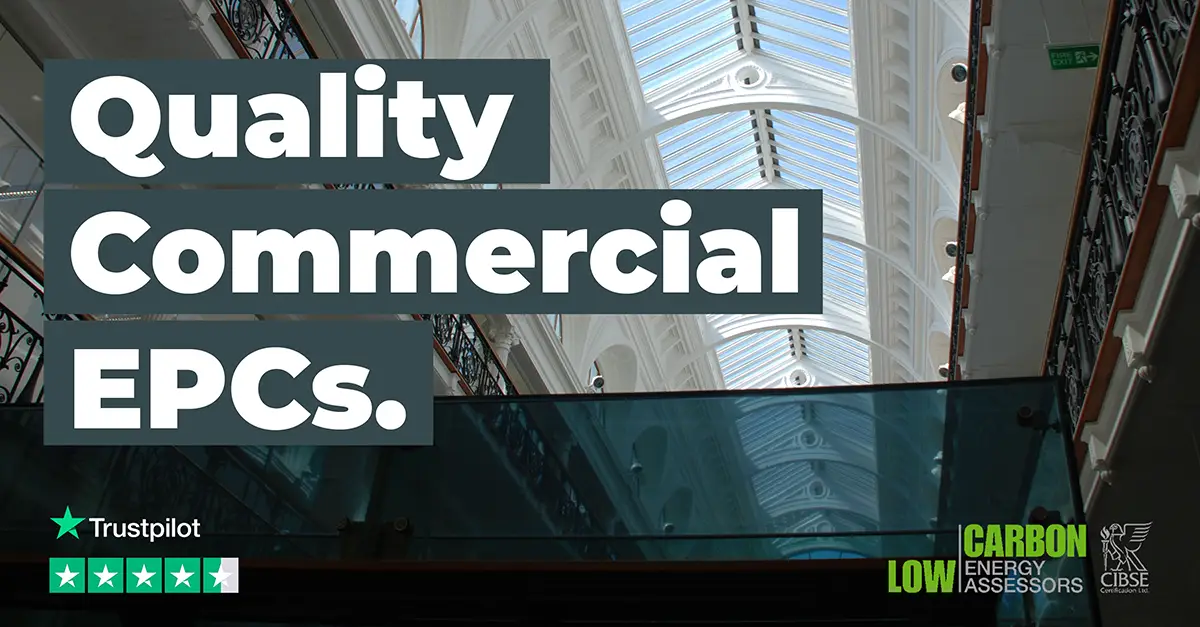EPC Ratings & Certificates: Everything You Need to Know
Energy Performance Certificates (EPCs) are a crucial factor in assessing the energy efficiency of buildings in the UK. Whether you’re a property owner, investor, landlord, or business, understanding EPC ratings is essential for compliance, cost savings, and property value.
With increasing government regulations around energy efficiency and net-zero goals, having a high EPC rating is more important than ever.
In this guide, we’ll cover:
- What EPC ratings are
- How EPC certificates work
- The rating scale from A to G
- Why EPC ratings matter for businesses and landlords
- How to improve your EPC rating
- The latest EPC regulations and penalties

What Is an EPC Rating?
An EPC rating is a grade that measures how energy-efficient a building is. It ranges from A (most efficient) to G (least efficient).
An EPC certificate is a legal document that provides:
- Energy efficiency rating (A-G)
- Estimated energy costs for the property
- Recommendations for improving efficiency
- Carbon emissions data
An EPC is mandatory for commercial and residential properties when they are sold, rented, or newly built. If your property doesn’t meet Minimum Energy Efficiency Standards (MEES), you may face fines and penalties.
How EPC Ratings Are Calculated
An EPC rating is based on:
- Type of building (commercial or residential)
- Heating and cooling systems used
- Insulation quality (walls, roofs, floors)
- Windows and glazing (single/double/triple)
- Lighting system efficiency
- Renewable energy sources (solar panels, heat pumps)
A qualified energy assessor will conduct an inspection and issue an EPC certificate, valid for 10 years.
EPC Rating Scale: A to G
| EPC Rating | Energy Efficiency Level | Implication |
|---|---|---|
| A (92-100) | Very Efficient | Low energy costs, high property value |
| B (81-91) | Efficient | Desirable for buyers & tenants |
| C (69-80) | Good | Acceptable, but can be improved |
| D (55-68) | Average | Most commercial properties fall here |
| E (39-54) | Below Average | Minimum legal standard for renting |
| F (21-38) | Poor | Needs urgent improvements |
| G (1-20) | Very Inefficient | Illegal to lease (MEES regulations) |
Key Takeaway:
Properties with E or lower must improve their EPC ratings to avoid fines and legal issues.

Why Are EPC Ratings Important for Businesses?
- Legal Requirement:
Since 2018, UK law requires commercial landlords to have at least an E rating to legally rent out properties.By 2027, all commercial buildings must have C rating or higher—and by 2030, a B rating will be required.
- Cost Savings:
Energy-efficient properties have lower heating, cooling, and electricity bills, saving businesses thousands per year. - Higher Property Value:
Buildings with high EPC ratings attract premium tenants and buyers. Properties rated A or B are more valuable and in higher demand. - Environmental Impact:
A better EPC rating means lower carbon emissions, helping businesses align with sustainability goals and net-zero commitments. - Avoiding Fines & Penalties:
Landlords who rent out properties with an F or G EPC rating face fines up to £150,000 under MEES regulations.
Understanding EPC ratings and certificates is essential for businesses, landlords, and investors. With stricter energy efficiency regulations, improving your EPC rating is no longer optional—it’s a necessity.
Why do EPC Ratings Matter?
✅ EPC ratings range from A (best) to G (worst)
✅ A minimum EPC rating of E is required to rent commercial properties
✅ Fines of up to £150,000 apply for non-compliance
✅ Upcoming regulations will require a C rating by 2027 & B by 2030
✅ Improving your EPC rating reduces costs, increases property value, and attracts better tenants
💡 Take Action: Get your EPC certificate today and start improving your rating to stay compliant, save money, and future-proof your property.

